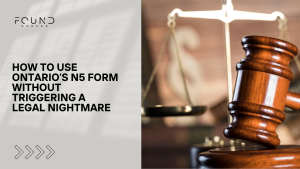Frequently Asked Questions that This Blog Will Answer:
1. What are the core responsibilities involved in property management for rentals?
Core responsibilities include tenant acquisition through effective marketing and screening, lease management with clear agreements, regular maintenance and upkeep, meticulous financial oversight, and ensuring regulatory compliance to meet safety standards and legal obligations.
2. How has technology transformed property management?
Technology, through property management software, streamlines operations, enhances communication, offers real-time financial data, and improves property performance metrics with features like online rent payment, maintenance request tracking, and financial reporting capabilities.
3. What benefits do professional property management services offer to property owners?
Professional services offer expertise in rental management, efficiency in operations, compliance with legal standards, and peace of mind from knowing the investment is cared for, emphasizing the importance of choosing a company with experience, transparency, and a focus on leveraging technology for better service.

In the dynamic world of rental properties, successful ventures hinge on adept property management for rentals. Whether a seasoned investor or newcomer, grasping its nuances is vital. This blog delves into strategies, best practices, and key considerations to foster flourishing rental investments.
The Fundamentals of Property Management for Rentals
Property management for rentals encompasses a broad spectrum of tasks and responsibilities, all aimed at maximizing the property’s potential while ensuring a seamless experience for both landlords and tenants. Here’s what lies at the heart of effective rental property management:
1. Tenant Acquisition: The process begins with attracting the right tenants. This involves marketing the property effectively, conducting viewings, and implementing a thorough screening process to ensure reliable, responsible tenants occupy your rental.
2. Lease Management: Drafting clear, comprehensive lease agreements is pivotal. These contracts should outline all terms and conditions, including rent, security deposit, maintenance responsibilities, and lease duration, ensuring legal protection and clear expectations.
3. Maintenance and Upkeep: Maintaining the property in top condition is non-negotiable. Regular inspections, prompt repairs, and ongoing maintenance not only preserve the property’s value but also contribute to tenant satisfaction and retention.
4. Financial Oversight: Effective property management also requires meticulous financial management. This includes timely rent collection, budgeting for expenses, and maintaining accurate financial records for tax and investment analysis purposes.
5. Regulatory Compliance: Staying abreast of and complying with local housing laws and regulations is essential. This includes everything from adherence to safety standards to understanding the rights and responsibilities of both landlords and tenants.
Leveraging Technology in Property Management
The integration of technology has transformed property management practices. Utilizing property management software can streamline operations, enhance communication, and provide real-time access to financial data and property performance metrics. Key features to look for include tenant screening tools, online rent payment options, maintenance request tracking, and financial reporting capabilities.
The Value of Professional Property Management Services
For many property owners, partnering with a professional property management company can be a game-changer. These companies bring expertise, experience, and resources to the table, offering a comprehensive suite of services that cover all aspects of property management. The benefits include:
- Expertise: Access to seasoned professionals who are well-versed in the nuances of rental property management.
- Efficiency: Streamlined operations that save time and reduce the hassle of day-to-day management tasks.
- Compliance: Assurance that your rental operations adhere to all legal requirements and industry best practices.
- Peace of Mind: Reduced stress and increased confidence, knowing your investment is being professionally managed.
Choosing the Right Property Management Partner
Selecting a property management company is a crucial decision. Look for a partner with a proven track record in managing similar rental properties, transparent pricing, and a strong focus on customer service for both landlords and tenants. Personalized service and a commitment to leveraging technology for efficiency and transparency are also key attributes.
Effective property management is the linchpin of successful rental property investment. By embracing best practices, leveraging technology, and potentially partnering with professional property managers, landlords can enhance their property’s value, optimize income, and provide a positive rental experience for tenants. As the rental market continues to evolve, staying informed and adaptable is key to navigating the challenges and opportunities that lie ahead.




